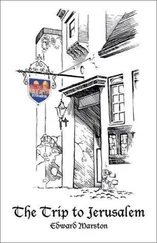But there had never been time to discuss their business in Smyrna, Stern's cause and Sivi's cause and Joe running guns from one to the other. The massacre had begun on a Sunday in September and there was nothing but slaughter and fire as the Turks butchered Armenians and Greeks. Joe and Haj Harun had gone to the address they'd been given, Sivi's villa on the harbor, and there they found Stern and Theresa trying to drag Sivi to safety, the old man bleeding from a head wound and raving incoherently, having been beaten by the Turkish soldiers who were inside his house, looting and setting fires.
Stern and Joe managed to carry the old man away. Theresa was still calm but later she too collapsed and began raving. And the slaughter went on as the city went up in flames, and Joe shot a Turkish soldier who attacked them, and Haj Harun killed a blinded old Armenian who was burning to death, and Stern slit the throat of a little Armenian girl who was dying in unbearable pain. Screams and smoke in the alleys of Smyrna, screams and death everywhere in that nightmare on the waterfront.
They all managed to escape. Joe was finished with Stern after that and told him so. Never another rifle smuggled for anyone, not for any cause, no cause was worth the slaughter.
Sivi?
He'd gone mad during the massacres.
Theresa?
Joe didn't know what had happened to her after Smyrna. Having broken with Stern, he lost touch with all of them except for Haj Harun. But Munk also knew Stern, as it turned out, and later Joe learned from him that Stern was still running guns and Sivi had never recovered his sanity. Of Theresa, however, Munk knew nothing. She'd simply disappeared.
For a year. Until she came to visit Joe on his roof a little over a year after Smyrna, on a clear evening early in November. November 5, to be exact. In Theresa's tortured mind there was a reason for the date, as Joe eventually discovered.
He didn't know why she'd sought him out, nor did he ask her. She'd brought a bottle of cognac with her and they sat here where he and Cairo were sitting now, having a drink and talking and neither one of them mentioning Smyrna. It was as if they'd met once pleasantly somewhere, chance acquaintances together again, who knew? A clear night with cognac and stars and stray sounds drifting up from the alleys.
To Joe it seemed better for them not to have a past that night. Not their past. Not the horrible hours they had known together in Smyrna. Better to have another drink and listen to the murmurs of the Old City, which never quite slept.
Time passed, they made love. It had been Theresa's doing but afterward she sat up in bed crying hysterically. Joe thought she was drunk. He tried to quiet her but she was screaming so wildly he had to slap her and slap her a second time, a third time before she stopped. She began talking feverishly then and her voice was terrible to hear.
She was evil, she said. For a year before Joe had met her she'd been sleeping with every man she could find in Smyrna who had a beard. Because she was obsessed with Christ, she said, laughing hysterically.
Because she was obsessed with finding Christ and all she could remember from the paintings in the convent school of her youth was that Christ had a beard. A beard. I've lost His face, shrieked Theresa, laughing hysterically.
Well none of those men in Smyrna had been Christ, she said. Until in the flames and the smoke of the massacres she'd seen a vision, and that's when she'd collapsed. She'd seen Joe standing over her with his beard and his burning eyes, the fires of Smyrna burning in his eyes, and she thought she'd found a face for Christ at last and that's why she'd come to him tonight. To make love with him, to use him to fulfill her twisted vision.
And how do you like that? she screamed. How do you like that?
Joe moaned.
Let it go, he whispered sadly. Let it go.
But she wouldn't. She kept on screaming and taunting him until finally he could stand it no longer and in another moment he was screaming too, calling her wicked, saying she was evil, shouting that she was damned forever. Damned forever.
Theresa heard those words and suddenly she was sober, her face grave. She looked up at him.
I am damned forever, she said simply. And then all at once she was a small naked woman huddled on his narrow iron cot, cowering and terrified and whispering naked words, terrible naked words.
Normandy. The château where Theresa and her brother had been born. Their father, a count, was a fanatically religious man, their mother a plain and quiet woman. Theresa would one day look like her.
A whore, shouted their father. That's what you were when I saved you.
Little Theresa and her brother crouching in a corner hearing the same dreadful words shouted over and over, their mother with a bowed head never saying anything. Then their mother began to stay in bed all day, and in the kitchen they heard the servants whispering of opium.
Their father dismissed the servants from the château. He told his children his shame before God was too great to allow anyone to see their mother in such a condition. They would live alone in the château and pray for her redemption, which would come if they prayed hard enough.
But it didn't come. Instead the children were out playing one afternoon when they heard pounding in a tool shed. They peeked inside. A cross made out of old lumber was leaning against the wall. Their father was nailing their mother to it.
They threw themselves at him and he knocked them down. They attacked him again and he drove them off with a hammer. They ran across the fields to the nearest neighbor, a curate, who ran back with them.
Their father was sitting at the foot of the cross, weeping. Their mother's head had fallen. She had already suffocated.
The curate went to his bishop and it was decided the scandal had to be suppressed because of its religious nature. The bishop made arrangements with a magistrate and it was agreed the count shouldn't be sent away for fear he might talk about what he had done. He would remain in the château and the curate would move in to live there. The children were made to place their hands on a crucifix and swear under threat of eternal damnation never to say anything about what they had seen. A certificate of death by natural causes was issued for their mother.
The curate moved into the château. Theresa and her brother almost never saw their father, who went to church seven times a day with the curate, observing the canonical hours. Other than that, obeying the curate's orders, he stayed in his rooms.
Their father did penance but no one knew he had carried his fasting to the point of giving up food almost entirely. For sustenance he had turned to raw Calvados, and over the years the small amounts of wood alcohol in the Calvados slowly ate away his brain.
The sudden outburst of submerged decay occurred five years later in the family chapel on the anniversary of the murder, at the special mass performed each year by the bishop for their mother. During the final benediction the emaciated old count shrieked and suddenly rushed forward. Before anyone could stop him he had climbed up on the altar. His arms were open to the crucifix on the wall and the words he screamed were those of the leper on the shores of Galilee.
Lord, if thou will thou can make me clean.
He leapt to embrace the crucifix and missed it, crashing through a window at the side and shattering the richly stained colors that had depicted a garden below Jerusalem, and the meeting there of two kinswomen who would one day know sorrow, Mary and Elizabeth.
The window was gone, the old count's throat was severed, the chapel was rendered into the silence of its candles.
Theresa and her brother returned to the chateau and went on living as they always had, alone with each other in a private world, secluded in their love. And gradually under those gray skies of Normandy, far from the black twisted roots of the past, there was born within them the dream of another and timeless land by the Nile where the blue heavens were unbroken and the distant horizons limitless, an ancient dream of an eternal pharaoh wed to his eternal sister.
Читать дальше












